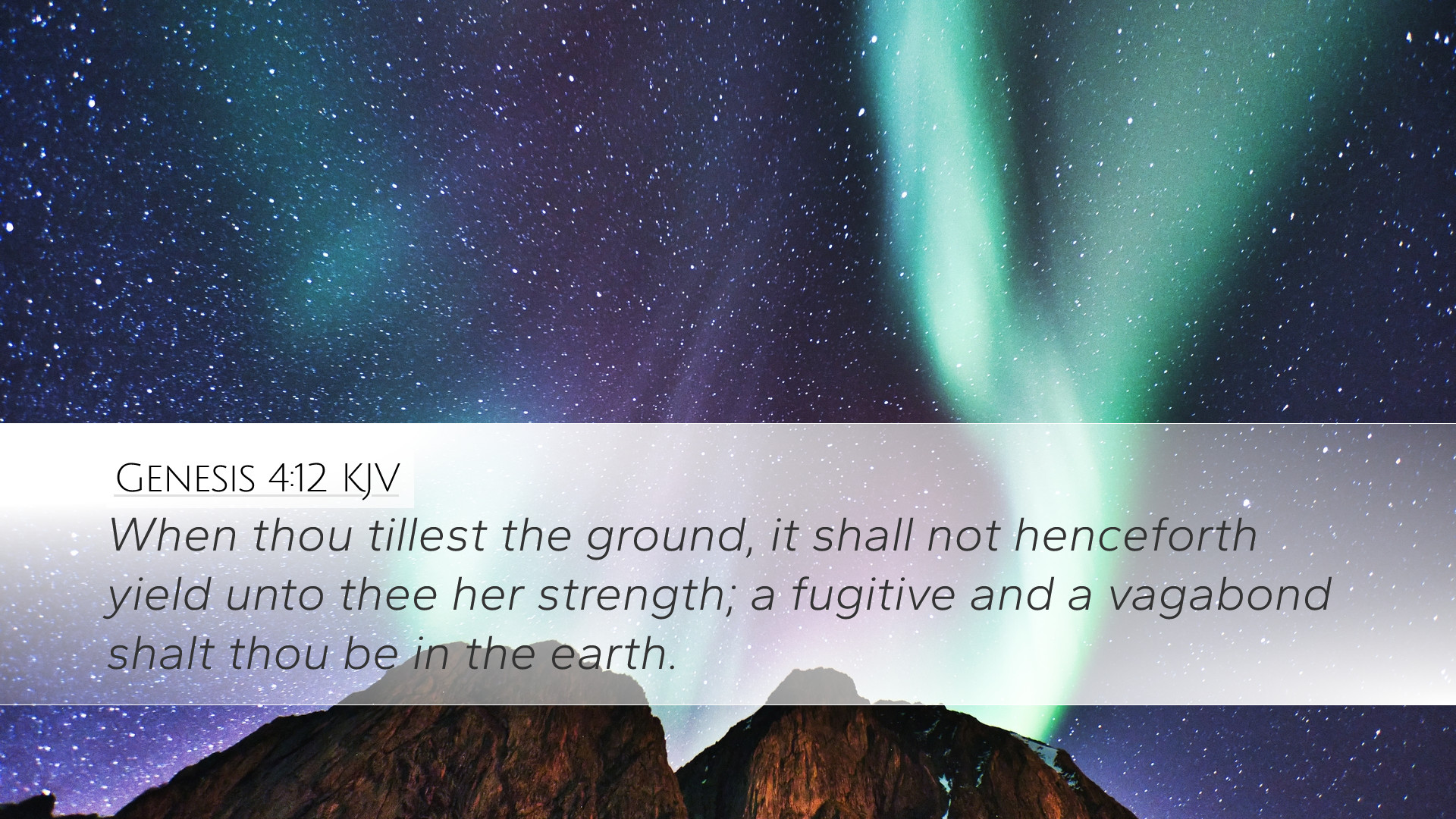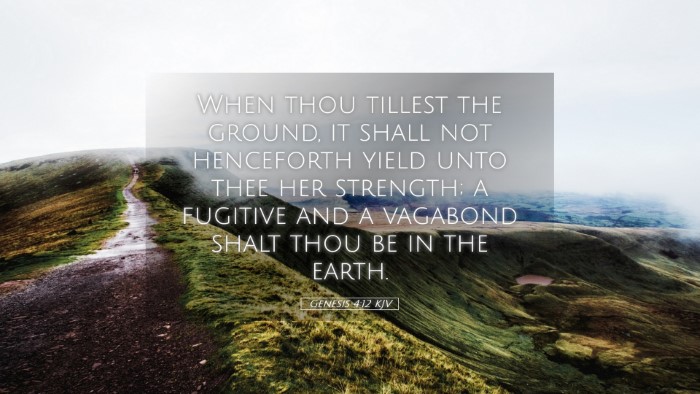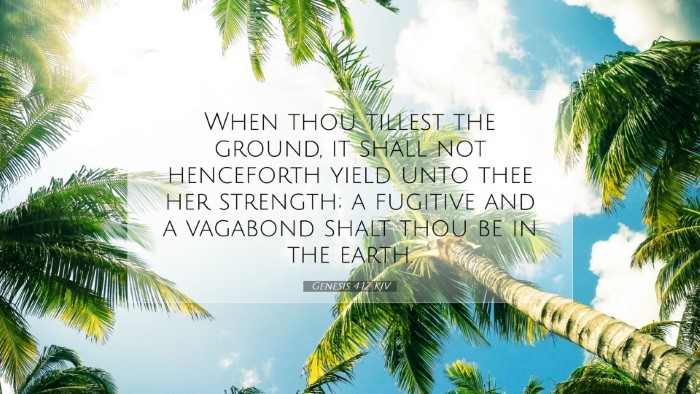Commentary on Genesis 4:12
Verse: "When you cultivate the ground, it will no longer yield to you its strength. You will be a fugitive and a wanderer on the earth." (Genesis 4:12, ESV)
Introduction
Genesis 4:12 marks a significant moment in the narrative of Cain, who has just committed fratricide by killing his brother Abel. This verse contains God's pronouncement of judgment upon Cain, transforming his identity and life circumstances as a result of his actions. Theological reflections on this passage delve into themes of sin, punishment, and the implications of human actions narrated in this early biblical account.
Contextual Background
The context of this verse is integral to understanding its meaning. Following Cain's offering of produce rejected by God, and his subsequent murder of Abel out of jealousy, this judgment indicates the grave consequences of sin. Commentators such as Matthew Henry emphasize that sin not only leads to personal guilt but also initiates a series of consequences that affect one's relationship with both God and humanity.
Insights from Public Domain Commentaries
Matthew Henry's Commentary
Henry notes that God’s punishment for Cain was twofold; he would experience a curse upon his agricultural endeavors which had previously been the source of his livelihood. This loss serves as a metaphor for the deeper spiritual consequence of being distanced from God. Henry also draws attention to the theme of Cain becoming a "fugitive and a wanderer." This reflects the spiritual and physical alienation that follows sin.
Albert Barnes' Notes on the Bible
Barnes elaborates on the realization of Cain’s fate; he interprets the phrase "no longer yield to you its strength" as symbolic of the disconnect between humanity and the earth post-Fall. Sin disrupts the natural order that God established. The agricultural curse emphasizes that Cain will not find solace or sustenance in his former labors, thus reinforcing the severity of divine retribution.
Adam Clarke's Commentary
Clarke highlights the personal implications of being a "fugitive and a wanderer," suggesting that Cain’s punishment also carries a psychological burden. He is expelled from the land of his ancestors and his livelihood, forced to roam without a home. Clarke points to this predicament as an essential illustration of how guilt and sin affect one’s ability to belong and find peace.
Theological Implications
The implications of Genesis 4:12 are profound for various theological discussions:
- Sin and Its Consequences: The verse serves as a stark reminder of the reality of sin; it leads to strife not just among individuals but also in one's relationship with creation.
- The Justice of God: God's response to Cain reflects His justice. The judgment is not arbitrary but a direct consequence of Cain's actions, exhibiting God's integrity in governance over sin.
- Alienation: Cain's situation illustrates a fundamental principle in Scripture regarding sin—it alienates individuals from their surroundings, relationships, and God himself.
- Hope for Redemption: Despite the gravity of his punishment, the overarching narrative of the Bible emphasizes God's desire for reconciliation. Although Cain's punishment appears severe, God's grace is woven throughout the Scriptures, offering restoration opportunities for all sinners.
Application for Pastors and Students
This passage invites pastors and students to reflect on a few guiding questions:
- Self-Examination: How do we address and confess personal sin in our lives? Are we aware of its implications?
- The Role of Accountability: How can we foster environments in our churches that promote accountability and healing, rather than judgment?
- Teaching on Grace: In our sermons, how can we balance the severity of sin with the necessity of God’s grace?
- Moral Decision-Making: What lessons can our communities learn from the story of Cain about moral choices that impact relationships with God and one another?
Conclusion
Genesis 4:12 serves as a crucial biblical text that encapsulates the complexities of human sin, the justice of God, and the reality of human existence post-Fall. The insights provided by Henry, Barnes, and Clarke enrich our understanding of this verse, prompting modern believers to reflect on the consequences of their actions, the nature of divine grace, and the hope of redemption.


